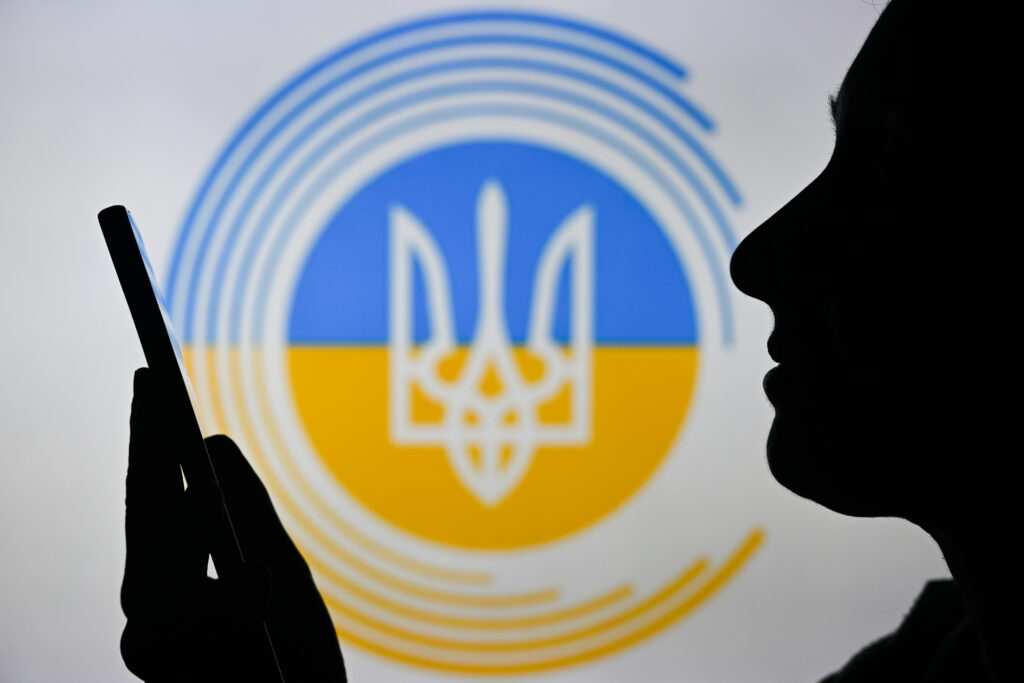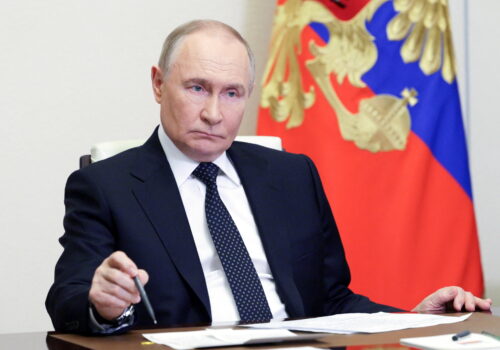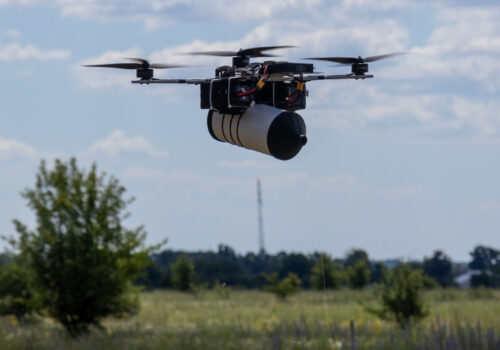Ukrainians underlined the strength of their democratic instincts in late July by taking to the streets and protesting new legislation that aimed to curtail the independence of the country’s anti-corruption institutions. The protesters made their point and achieved a significant victory, with Ukrainian President Volodymyr Zelenskyy reversing course just days after backing the controversial changes.
Ukrainians have a long record of rising up against non-democratic moves in times of need. This latest example mirrored much larger and equally successful protest movements in recent decades such as the 2004 Orange Revolution and the 2014 Revolution of Dignity. The Ukrainian public are well aware that their hard-won democratic freedoms cannot be taken for granted.
The Ukrainian authorities would be wise to treat the recent protests as a serious indication of mounting public dissatisfaction with the current government. While Ukrainians have rallied behind Zelenskyy as the country’s wartime leader, this should not be confused with blanket approval for all his policies. Indeed, more protests cannot be ruled out. Next time, public anger might not be as easily appeased.
In any healthy democracy, elections are always the best pressure valve for public discontent. However, due to wartime security concerns, logistical obstacles, and martial law restrictions, elections are not currently possible in Ukraine. In 2024, the country postponed scheduled presidential and parliamentary ballots. More recently, Ukraine’s Central Election Commission confirmed that local elections would not go ahead later this year.
Stay updated
As the world watches the Russian invasion of Ukraine unfold, UkraineAlert delivers the best Atlantic Council expert insight and analysis on Ukraine twice a week directly to your inbox.
The reasons for the lack of elections are clear and mandated by Ukraine’s Constitution. In fact, a consensus has crystallized that any public calls for wartime elections in Ukraine could help legitimize Russian efforts to portray the country as a dictatorship. However, there is no escaping the fact that the absence of elections hurts Ukraine’s credibility as an emerging democracy. This risks undermining international support for Ukraine and could potentially lead to a reduction in military aid.
While it has often been pointed out that Britain postponed all elections throughout World War II, many Americans have noted that the United States was able to hold both congressional and presidential elections during the nineteenth century American Civil War. Indeed, Abraham Lincoln’s main opponent was one of his own generals.
Ukrainian safety concerns amid the largest European invasion since World War II are obviously valid. At the same time, holding local votes in parts of Ukraine situated far from the front lines such as Uzhgorod, Lviv, and Chernivtsi could theoretically be possible with the necessary security measures in place.
With millions of voters currently living as refugees outside Ukraine and others displaced or serving in the military, voter turnout would almost certainly be significantly below the average for Ukrainian elections. This is regrettable but should not be decisive. After all, any free and fair election would help revive domestic and international confidence in Ukraine’s democratic credentials.
Of course, even local elections could not be safely staged in cities closer to the front lines like Kharkiv, Zaporizhzhia, and Kherson. The solution to this problem may lie in Ukraine’s sophisticated tech sector and the widespread adoption of digital tools throughout Ukrainian society.
Since 2022, Ukraine has earned an international reputation for battlefield innovation and now is recognized as a world leader in drone warfare. If this same spirit is applied to the country’s democracy, it could be possible to hold local or national elections while avoiding the risks associated with large groups of people gathering for campaign rallies and at polling stations.
Eurasia Center events

Following his election as Ukraine’s sixth president in 2019, Volodymyr Zelenskyy established the Ministry of Digital Transformation and identified digitalization as one of his strategic priorities for Ukrainian society. The Ukrainian government then launched the Diia app as a key e-governance tool that makes it possible for Ukrainians to hold a wide range of official documents in digital format. By late 2024, the Diia app had over 21 million users, representing a majority of the Ukrainian electorate.
It is worth exploring whether the Diia app could serve as the basis for secure digital voting. If Diia is not suitable, other digital options should be identified and developed. This approach could address election security concerns while also preventing the disenfranchisement of the millions of Ukrainians currently living abroad or defending the country against Russia’s invasion.
Skeptics may argue that the Diia system or any other digital voting platform would be vulnerable to hacking. This would undoubtedly be the key issue to address before proceeding with digital elections. At the same time, it is important not to overstate the challenges this represents. Fraud is always possible in any election, but the transparency of digital tools may actually reduce the risk when compared to paper ballots. Indeed, Ukraine’s digitalization experience suggests that the introduction of digital platforms actually reduces the scope for abuses.
Ukrainians are not yet demanding elections, but there are signs that public distrust of the authorities is mounting and may soon reach alarming levels. At a time when national unity is so crucial for the country’s survival, this mood of frustration must be taken seriously.
With no end in sight to the Russian invasion, Ukraine cannot afford to postpone all elections indefinitely. It is therefore time to start the process of digitalizing Ukraine’s democracy and employing the same kind of innovative thinking that has proved so effective on the battlefield. The technologies to do so already exist. The Ukrainian government must now demonstrate that they also have the political will to find the right solutions.
Brian Mefford is a senior nonresident fellow at the Atlantic Council. He has lived and worked in Ukraine since 1999.
Further reading
The views expressed in UkraineAlert are solely those of the authors and do not necessarily reflect the views of the Atlantic Council, its staff, or its supporters.

The Eurasia Center’s mission is to enhance transatlantic cooperation in promoting stability, democratic values, and prosperity in Eurasia, from Eastern Europe and Turkey in the West to the Caucasus, Russia, and Central Asia in the East.
Follow us on social media
and support our work
Image: Artur Widak via Reuters Connect





